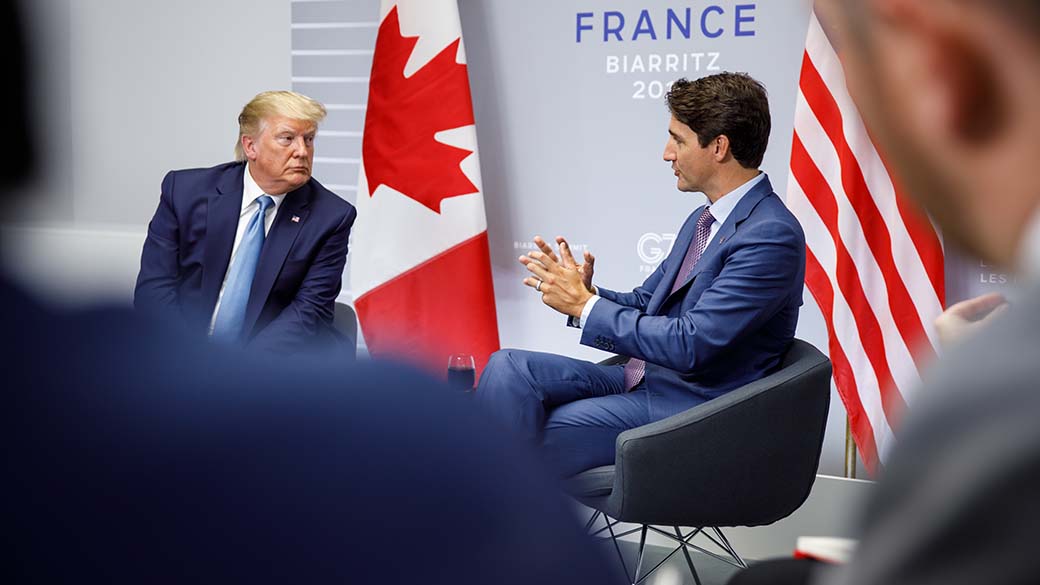Canada Prepares for Potential Global Tariffs as Former U.S. Commerce Secretary Doubts Trump Would Tax Canadian Energy
As Canadian officials brace for the upcoming administration of U.S. president-elect Donald Trump, there is growing concern over the possible implementation of a 10% global tariff, a key component of Trump’s campaign platform. While the Canadian government, provinces, and industries prepare for the potential economic fallout, former U.S. Commerce Secretary Wilbur Ross expressed doubt that Trump would target Canadian energy specifically.
Ross, a billionaire investor who served in Trump’s cabinet from 2017 to 2021, shared on Rosemary Barton Live that he “can’t imagine” Trump imposing a tax on Canadian energy imports. According to Ross, such a move would raise costs within the U.S. and would not contribute to the creation of American jobs. “We import a lot of energy from Canada,” he explained. “I can’t imagine the [president-elect] would want to tax that.”
Preparing for Economic Uncertainty: Canada’s Response to Trump’s Tariff Plans
Despite Ross’s comments, Canadian federal and provincial leaders are leaving nothing to chance. With Trump’s decisive election win and looming inauguration, both federal and provincial governments are working to mitigate potential economic impacts from a new tariff. Ontario and Alberta, two provinces that rely heavily on U.S. trade, are leading the charge.
In Ontario, Economic Development Minister Vic Fedeli recently announced plans for a marketing push in January aimed at highlighting the importance of cross-border trade. By reminding American businesses and policymakers of the benefits of bilateral economic ties, Ontario hopes to deter Trump’s administration from implementing policies that could hinder trade. “We’re focused on building stronger relationships and emphasizing our mutual benefits,” Fedeli stated, emphasizing the economic interdependence of the two nations.
Similarly, Alberta is taking proactive steps to advocate for its interests in the U.S. Alberta’s representative to the United States, James Rajotte, shared on Rosemary Barton Live that he is actively reaching out to American lawmakers, urging them to recognize the importance of North American energy security. “We’re making the case for interconnected energy markets,” Rajotte said. “Let’s not create unnecessary barriers in energy trade.”
The Alberta oil and gas industry is a significant economic contributor, with exports to the U.S. totaling $127 billion last year—an impressive 82% of the province’s total exports, making the U.S. by far Alberta’s largest trading partner. Given this vital economic relationship, Alberta is advocating for policies that support the continued, seamless flow of energy resources between the two nations.
Canada’s Strategy: Engagement and Groundwork
Canada’s ambassador to the United States, Kirsten Hillman, noted that Canadian officials have been working diligently to lay the groundwork for substantive policy discussions with the incoming U.S. administration. Speaking on Rosemary Barton Live, Hillman explained, “We’ve done extensive work to prepare for meaningful conversations on this issue.” Hillman emphasized the importance of demonstrating with data that imposing tariffs on Canadian imports would negatively impact U.S. jobs and economic revenue.
Trump has historically used tariffs as a policy tool, something Hillman acknowledged. “It’s clear that [former] President Trump believes in tariffs,” she said. “Our task is to show the real consequences for American businesses and workers if Canadian goods are subject to these tariffs.”
Trump “Will Listen” to Canada, Says Former Secretary Ross
When asked how Canada should approach the new administration, Ross suggested that Canadian leaders consider ways to facilitate the relationship with the U.S. rather than simply making requests. “America has a much sturdier set of principles and policies now,” Ross said, hinting that Canada might find success by identifying concessions that support mutual interests.
Ross expressed optimism about Trump’s willingness to engage with Canadian officials. “He respected [Prime Minister Justin] Trudeau, and he respects other world leaders,” he noted. He advised that Canada should seek opportunities for collaboration while being prepared for negotiation. “Concessions will be necessary on both sides.”
The relationship between Trump and Trudeau has been tested in the past. In 2018, during a G7 summit in Charlevoix, Quebec, Trump called Trudeau “very dishonest” and “weak” as Canada and the U.S. were locked in tense negotiations over NAFTA, with disputes over the addition of a sunset clause to the revised trade deal. Nevertheless, Hillman downplayed any lingering friction, noting that while Trump’s language may have been direct, the working relationship remained productive.
“There’s a fixation on Trump’s colorful language,” Hillman observed, but noted that his actions were just as telling. “It’s important to watch how he works with partners, not only what he says,” she emphasized, expressing confidence in Canada’s ability to work effectively with the Trump administration.
Moving Forward: Canada’s Economic Stakes in U.S. Trade
With the U.S. being Canada’s largest trading partner, maintaining stable cross-border trade is critical to Canada’s economic stability. Trump’s potential global tariff would add financial strain to sectors like manufacturing, technology, and especially energy—key components of Canada’s export economy. The Canadian government’s approach has been to highlight how integrated the two economies are and the potential economic consequences of tariff-driven policies for both nations.
In a recent phone call, Trudeau congratulated Trump on his second term win, and the two leaders discussed issues related to trade and security. The conversation, which reportedly focused on collaborative opportunities, underscores the importance of diplomatic engagement in navigating economic uncertainties.
As Trump prepares to take office, Canada’s strategy is clear: engage with American policymakers, emphasize the mutual benefits of free trade, and present a data-backed case against tariffs. With high stakes for both nations, Canadian leaders will work to preserve trade ties and mitigate potential economic fallout, aiming to secure a prosperous relationship in the years ahead.
Source : Swifteradio.com


